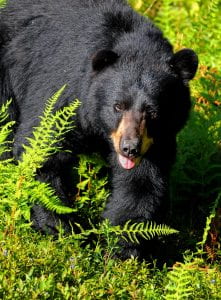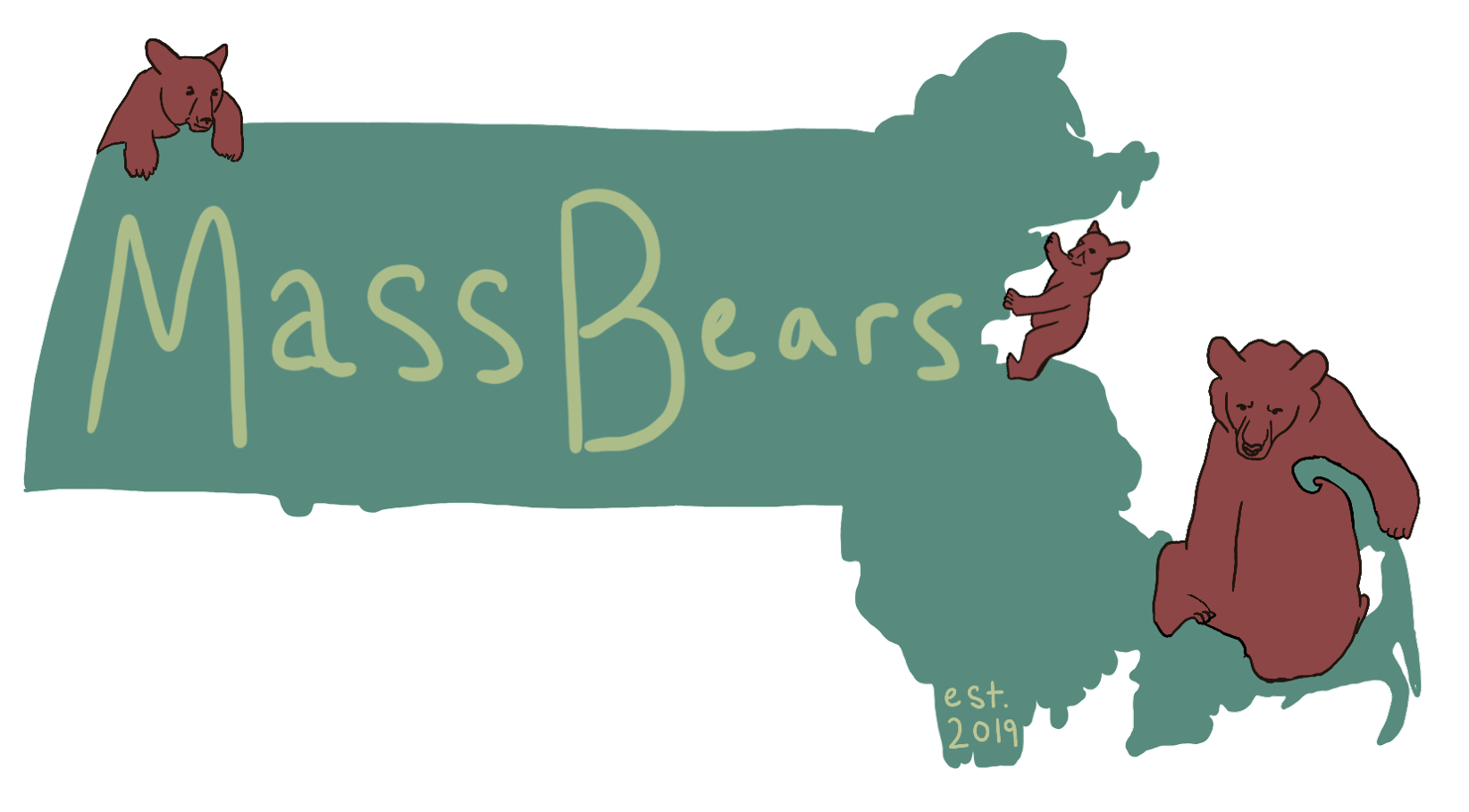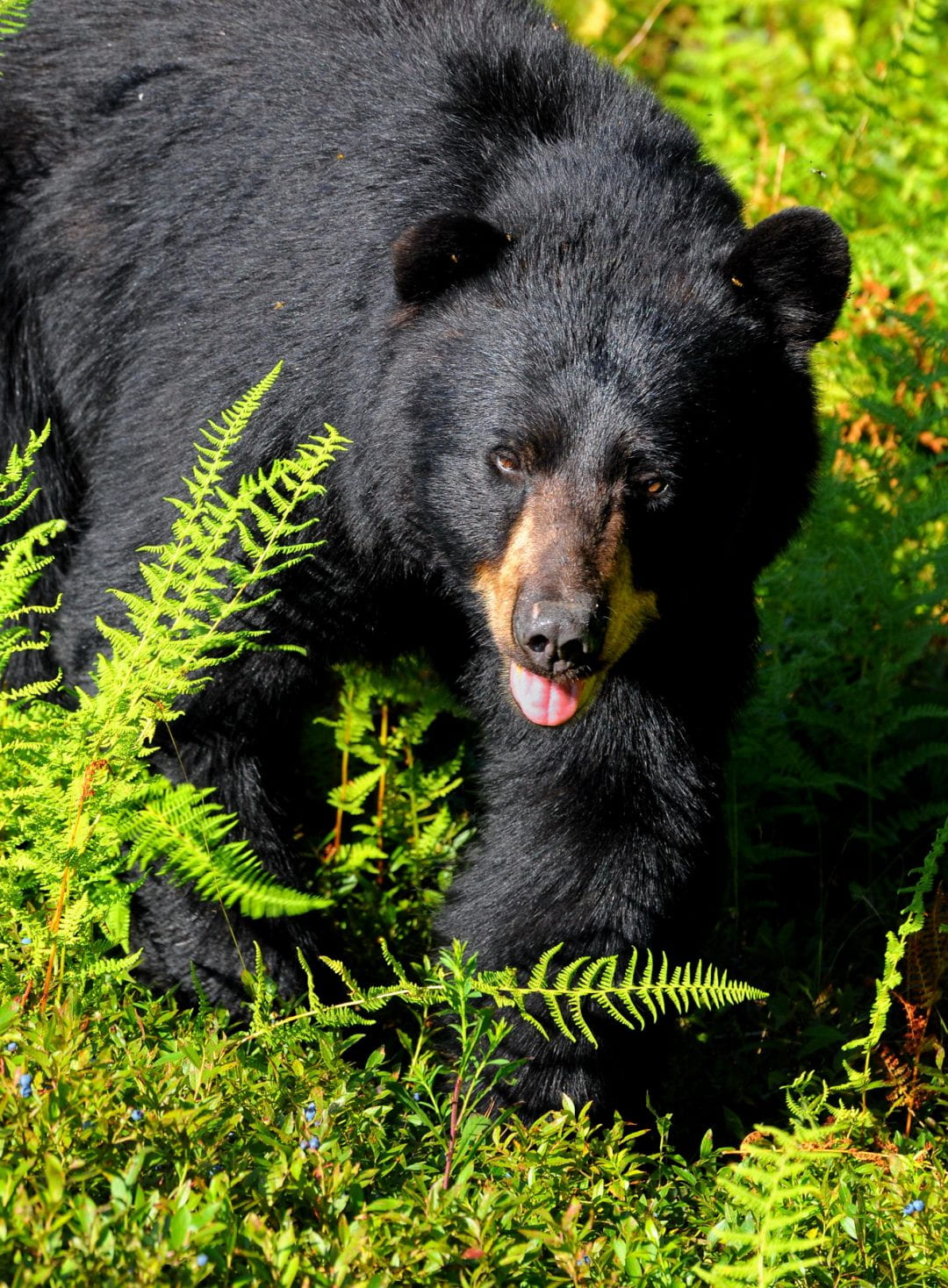Density estimates are a tool used to estimate population sizes for wildlife. The last density study was conducted in the Berkshires in 1993 and it was estimated that there were 18 female black bears / 100 km2.

Because the black bear population has expanded well beyond the Berkshires into different habitat types with different levels of road densities and human development, a new density estimate is needed. With the new estimates, we can determine how black bear densities change with different habitat types across the state. For example, other studies have shown that the density of black bears can be higher in exurban environments than in more natural environments due to the availability of anthropogenic foods. However, this also means bear-human interactions may be elevated in these areas, which sometimes causes conflict. New density estimates will result in more accurate population estimates for black bears across the state.
This project aims to update the density estimates from 1993 with current data and provide estimates of black bears numbers in Massachusetts. This information will help managers make scientifically-informed decisions about how to manage the black bear population and help predict where nuisance situations may arise.


You must be logged in to post a comment.